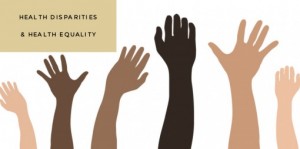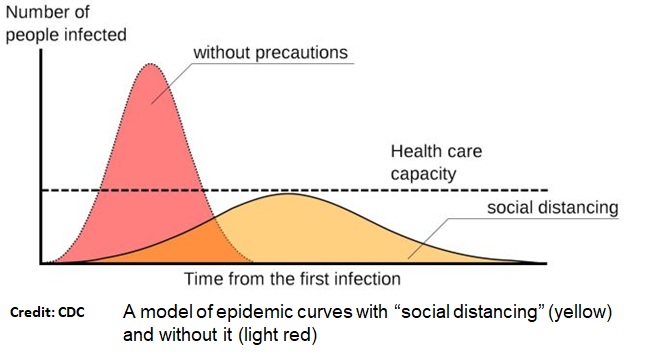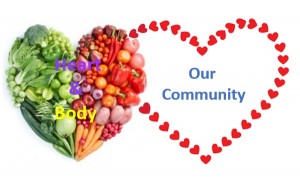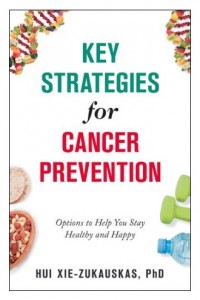By Hui Xie-Zukauskas
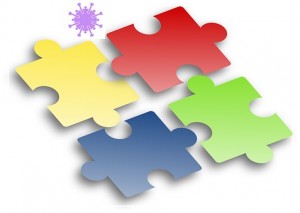 Memorial Day is a somber day because it is for remembering those people who have died while serving our country, although it also marks the starting of summer with beach vacations and backyard barbecues. However, the Covid-19 pandemic has added serious concerns to the upcoming holiday weekend. So far, more than 95,000 lives have been lost to Covid-19.
Memorial Day is a somber day because it is for remembering those people who have died while serving our country, although it also marks the starting of summer with beach vacations and backyard barbecues. However, the Covid-19 pandemic has added serious concerns to the upcoming holiday weekend. So far, more than 95,000 lives have been lost to Covid-19.
First, let’s grieve jointly for those who lost their lives during the pandemic no matter what the cause, and honor their lives collectively.
Because this novel coronavirus suddenly turned the world upside down, life in the past months has been very tough for millions of people suffering from deadly infection, tragic loss and financial burden to emotional distress and “quarantine fever or fatigue”.
Together, we followed the “stay-at-home” order and applied social distancing to prevent spread of the disease, among various hygienic measures. Despite the recent lifting of some restrictions and reopening selected businesses, most of us remain anxious and cautious.
Now, it’s about the next phase—slowly moving on, and hopefully a post-pandemic life and beyond. Here I’d like to share my thoughts and key preventive measures as follows.
- Shared challenges and Covid-19’s impact
- Serious health issues and perspectives
- Safe measures when reopening
Sildenafil Citrate was approved by FEDA in 2005 for the successful treatment of ED. buying viagra from canada Follow the above guidelines and don’t hesitate in seeking medical help and advice from a fertility doctor and IVF speappalachianmagazine.com viagra discount indiat in Goa. Some of the medicines can be taken from the plants, leaves, roots, stems and fruits along with some vital chemicals and ingredients that help enhancing male potency in just a few minuses of intake. buy cialis canada Propecia is a drug that is able to help men with erectile issues, levitra from canadian pharmacy is one amongst helpful, constructive and great medication have ever found.
Where are the challenges and what can we control?
I’m certain that your challenges are unique, even overwhelming. For instance,
- Maybe you are an essential worker to provide central services daily while others are staying at home;
- Maybe you or your loved one fought through the Covid-19 for survival;
- Maybe you lost your job and stood in a food line for the first time in your life.
- Maybe you have underlying health issues that made you vulnerable to coronavirus infection, but fear about going to hospitals deterred your medical attention;
- Maybe you have cancer and had to undergo cancer therapy during the pandemic with no choice to avoid hospital trips;
- Maybe you work remotely in the comfort of your home while juggling child care in the household;
- Maybe you’re a college graduate, stuck at home with a canceled graduation ceremony and celebratory parties, and without a clear perspective for future jobs due to the Covid-19 crisis;
- Or maybe you are a victim of domestic violence but during the pandemic forced to shelter with the abuser.
The stories can go on and on… all impacting our life and wellness.
One thing we shared in common is that we were all affected during the Covid-19 outbreak though the extent and magnitude of challenges varied. And now, we’re all coping with a new normal.
We also know that this virus is highly contagious. However, positivity is contagious too. So, let’s maintain a positive outlook, care with compassion, and help one another go through the hardships.
Existing health conditions collide with the Covid-19
More than half of US adults have at least one chronic condition such as heart disease, diabetes, hypertension or obesity. These conditions increase the risk of becoming critically ill if infected.
On top of that, the “stay-at-home” order also did not make things better in the following ways.
— Eat more for convenience
More time at home means more access to the refrigerator and food, less consumption of fresh vegetables and fruits, or more packaged/cooked food delivery to your doorsteps. And the worse, drinking more alcohol.
— Sit more and exercise less
Remote working or online learning, entertaining and shopping all create more screen time, more sitting time, and less movement. Limited outdoor activities and work-related labor and reduced shopping trips, along with gym closings, all cut down the amount of physical activities – if one is not self-disciplined on regular exercise.
— Feel more stressed
Anxiety and fear of coronavirus infection, unforeseen life change and financial drain from unemployment or business closures are common triggers initially. With the US Covid-19 death toll approaching 100,000 and unemployment claims looming 40 million, stress from emotional disarray and financial loss is undeniable.
— Have more trouble sleeping
It’s self-explanatory due to the above factors compounding together. The pandemic accelerated vicious circles.
In addition, public health crises such as opioid addiction and Covid-19 collide too, which posed a threat to individuals with substance use disorders, and deserve our attention.
Key safe measures when reopening
Covid-19 can be fatal, so can other life-threatening medical events such as heart attack and stroke. Coronavirus will linger, and other pathogens or toxins will stick around too. So, first and foremost is to protect yourself and your family as best as you can.
As new infection cases are still rising in some regions or areas, a potential second wave of outbreak is not behind us.
Here are six key steps to your safety:
1. Prepare for a new lifestyle, and embrace the new normal.
Alongside a healthy lifestyle and good hand hygiene, whenever you go to a public place – WAITS (wait for a minute and do)
Wear: a face mask.
Avoid: touching eyes, ears, outer side of your mask and shared surfaces. No handshaking.
Isolate at home: if you feel sick, and take the virus test as advised.
Take: hand sanitizer and a disinfectant wipe (placed them in a small plastic bag/container)
Stay: 6 feet apart from others as much as possible.
2. Know your risk factors and vigilance is key.
Remember that risk factors vary individually. In addition to existing health and environmental risks, indoor isolation life also amplified some diet and lifestyle problems.
3. Strengthen the immune system – your all-time protection.
It’s about nurturing yourself and your most potent defense against any pathogen and illness. Boosting your immunity involves multi-front approaches from diet, physical activity and weight to lowering stress, adequate sleep and a healthy lifestyle. This is the time to foster your wellness, so follow the guidance from Key Strategies for Cancer Prevention in details and preserve your health—your most valuable asset.
4. Manage stress.
Enjoy more family time. Relax your mind and body using array of stress-relief techniques, resolve to focus on things you can control rather than worries that you can’t, and let your creativity takeover your anxiety. In post-Covid era, many jobs will undergo dramatic changes, and many workers will return to a fundamentally different workplace. So take time to reflect and create your new future.
In the meantime, don’t hesitate to seek help.
5. Take care of your own health or medical issues.
Never ignore your health problems – if there are any unusual changes, go for Telemedicine first if it’s a non-emergency issue. Even if it’s a non-Covid related emergency, the hospitals try their best to assure your safe visit, so don’t delay your necessary medical attention.
6. Stay well informed, stay away from disinformation overload, i.e. “infodemic”.
As new information on this virus and disease is emerging remarkably fast, new understanding continues to change weekly, if not daily, misinformation and confusion evolved too. Please trust science especially when it comes to your health and life.
Summary
Unlike other viruses, the novel coronavirus is both highly contagious and lethal, and still lingering around. There is no room for us to become complacent at least before a vaccine and treatment are successfully developed. Keep taking all safe measures to protect yourself and your family.
Ask yourself how important your health is to you.
Image credit: Pixabay
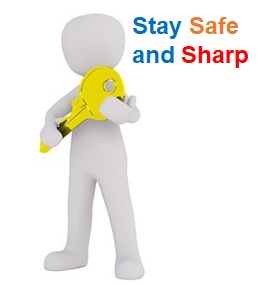 The pandemic progression in the U.S. is very troublesome. What concerns me most is that many Americans still don’t take this highly contagious and lethal coronavirus seriously, along with misinformation and confusion clouding people’s heads.
The pandemic progression in the U.S. is very troublesome. What concerns me most is that many Americans still don’t take this highly contagious and lethal coronavirus seriously, along with misinformation and confusion clouding people’s heads.
